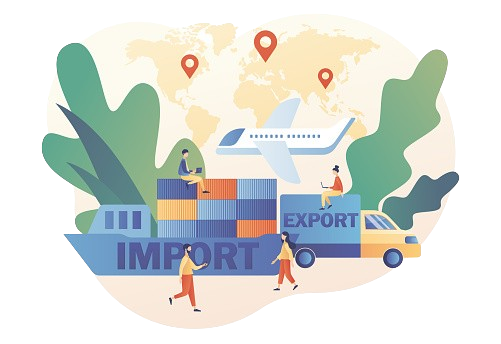Welcome to our comprehensive guide on Sea LCL (Less than Container Load) Import Service, a cost-effective and efficient shipping solution for smaller import shipments. In this guide, we'll explore the process, benefits, and considerations of importing goods via Sea LCL.
1. Introduction to Sea LCL Import Service
Sea LCL Import Service refers to the transportation of smaller import shipments that do not fill an entire shipping container. This service is vital for importers dealing with smaller volumes of goods and seeking a flexible and economical shipping option. Sea LCL offers advantages in cost savings and accommodates varying cargo sizes.
Understanding Sea LCL Shipping
a. What is LCL Shipping?
LCL (Less than Container Load) Shipping involves consolidating multiple smaller shipments from different consignees into a single shipping container. This method allows importers to share container space and transportation costs, making it ideal for shipments that are not large enough to justify a full container.
b. Benefits of Sea LCL Import
-
Cost Savings: Importers pay only for the space they use within a container, reducing overall shipping costs.
-
Flexibility: LCL shipments offer flexibility in cargo volume and frequency, allowing importers to manage inventory efficiently.

Key Components of Sea LCL Import Service
a. Consolidation Process
In Sea LCL Import, shipments are consolidated at origin to maximize container space efficiency. Cargo from multiple shippers is grouped and loaded into a container bound for a common destination port.
b. Shipping Routes and Transit Times
Sea LCL services operate on common shipping routes worldwide. Transit times for LCL shipments vary based on the origin, destination, and route, typically ranging from a few weeks to a month.
Sea LCL Import Procedures
a. Documentation Requirements
Essential documents for Sea LCL Import include a Bill of Lading, Packing List detailing contents and weights of each shipment, and import customs clearance documents required by destination customs authorities.
b. Customs Clearance Process
Customs clearance for LCL shipments involves declaring the consolidated cargo, paying applicable import duties and taxes, and complying with customs regulations. Customs brokers assist in navigating the clearance process.
Cost Considerations
a. LCL Freight Charges
Sea LCL freight rates are determined based on the volume of cargo shipped. Factors influencing rates include distance, route, and shipping season. Importers should also consider additional charges such as handling fees and customs clearance costs.
b. Customs Duties and Taxes
Import duties and taxes are calculated based on the cargo's classification and value. Tariff rates vary by product category and destination country.
Risk Management and Insurance
Importers should assess risks associated with Sea LCL shipments, including potential damage or loss during transit. Obtaining comprehensive cargo insurance coverage is recommended to mitigate financial risks.
Choosing a Freight Forwarder for Sea LCL Imports
Selecting a reputable freight forwarder experienced in Sea LCL shipping is crucial. Consider factors such as service reliability, network coverage, and customer support when choosing a freight partner.
Tips for Efficient Sea LCL Import Management
- Properly package and label individual shipments to ensure safe consolidation.
- Maintain clear communication with freight forwarders and consignees throughout the import process.
- Utilize shipment tracking tools to monitor the progress of Sea LCL shipments and manage delivery timelines effectively.
Case Studies and Examples
Explore real-world examples of successful Sea LCL Import operations, highlighting best practices and lessons learned from importers leveraging LCL shipping services.
Future Trends in Sea LCL Import Services
Advancements in technology and sustainability initiatives are shaping the future of Sea LCL Import services. Expect continued innovations in container tracking, digital documentation, and eco-friendly shipping practices.
Conclusion
Sea LCL Import Service offers importers a flexible and cost-effective solution for shipping smaller volumes of goods internationally. By understanding the Sea LCL import process and partnering with reliable freight providers, importers can optimize their supply chain and expand market reach efficiently.
